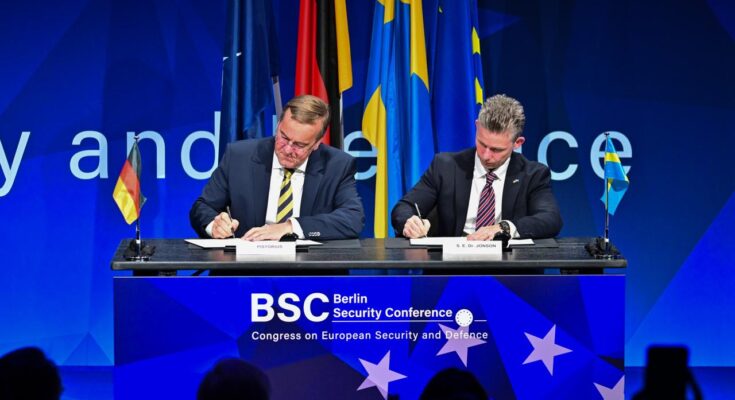Defense Minister Pistorius warned of increasing threats from Russia at the Berlin Security Conference. The Baltic Sea is also increasingly becoming an “area of confrontation”. NATO General Gerhartz calls for widespread reform in Germany.
Defense Minister Boris Pistorius called on European allies at the Berlin Security Conference to immediately expand defense preparedness on the continent. He was referring to the growing threat from Russia.
The Baltic Sea, which has long been considered a bridge between European countries, is increasingly becoming an area of confrontation, said Pistorius. This is Putin’s testing ground for Europe’s deterrence and response capabilities. He cited damage to undersea cables, airspace violations and drone flights as examples.
“We can no longer talk about coincidences here.”
“We can no longer talk about coincidences here. This is strategy. This is a sign,” said Pistorius. “Moscow has launched a hybrid attack on all of us through cyberattacks, espionage, sabotage and disinformation,” Pistorius said.
The SPD politician signed an agreement with his Swedish counterpart Pål Jonson to increase military cooperation with NATO countries. Sweden is a partner country for this year’s meeting.
On the sidelines of the conference, Dutchman Martin Bonn, previously deputy division commander of the 10th Panzer Division, was promoted to major general. He will now become deputy commander of the German field army – a new twist in deep cooperation.
NATO general calls for reform
NATO General Ingo Gerhartz called on Germany to step up its efforts to deter a possible Russian attack. To successfully counter and prevent the threat and increasing number of hybrid attacks, fundamental reforms in procurement, rapid implementation of new military services and strengthening defense readiness across society are essential, Gerhartz said at the start of the conference.
“Germany as a whole has not yet reached the strategic maturity required of our time,” said the German general, who heads the operational headquarters (“Allied Joint Forces Command”) in Brunssum, the Netherlands. “If Germany wants to become an advanced security actor, all countries must understand that investing in capabilities alone is not enough.”
Gerhartz was referring to a months-long dispute over military service that has now been resolved. Russia also noted that German procurement management sometimes took years and the industry had problems scaling up weapons production.
Handling attacks in the gray area
He warned against damaging the defense alliance’s credibility. NATO cannot organize deterrence against Germany, but must be able to “deterrence through Germany.” It should also be discussed how deterrence might function in the future in the so-called gray zone of hybrid attacks and under the obligation to provide assistance under Article 5. Gerhartz demanded: “We must rethink our attitude towards deterrence.”
Politicians, military representatives and economic experts will discuss strengthening defense in Europe at the Berlin Security Conference until Wednesday. At the two-day meeting, more than 140 experts will be present at the podium and take part in discussions. Experts want to explain how to respond to various threats to NATO and the EU.


